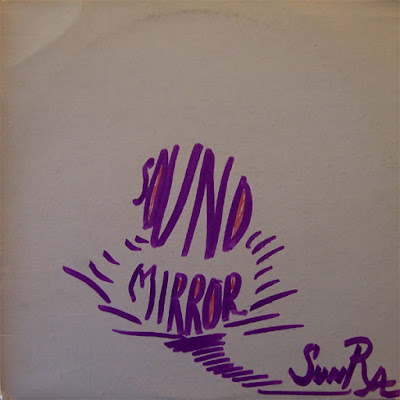 There's no denying Seeger's historical importance to both folk and pop music and on the political front, well, he's been a kind of canary in the coal mine for decades, speaking (and singing) out on any number of vital issues.
There's no denying Seeger's historical importance to both folk and pop music and on the political front, well, he's been a kind of canary in the coal mine for decades, speaking (and singing) out on any number of vital issues.At the time that this album was originally released, though, Seeger presented a tough marketing problem for Columbia, partly because of the singer's strong political views and partly for his equally as strong aversion to all things mercantile, and at a time when the urban folk boom was at its peak, Seeger, who by all rights should have been in the front and center of it, was marginalized, as much an embarrassment to Columbia marketing execs as he was an asset. Time heals all wounds, however, or at least time covers them up, and Seeger can now be viewed as what he always was, a gifted live performer, songwriter and song preserver who has more interest in bringing people together for social utility than dividing and provoking them to anger.
On his previous Columbia Records LP, "Pete Seeger Now", recorded and released in 1968, Pete Seeger reflected the desperation felt by left-wing activists in the wake of that tumultuous year, as "the Movement" (a combination of Civil Rights and anti-Vietnam War advocates) suffered the successive body blows of the assassinations of Dr. Martin Luther King, Jr., and Senator Robert F. Kennedy; the Chicago police riot during the Democratic National Convention; and the election of pro-war candidate Richard Nixon as president. It was enough to make even a veteran of earlier struggles like Seeger embittered and depressed, and he reacted by writing and singing more radical material, and by turning over half the album to strident African-American performers. A year later, however, he had turned a corner, growing a beard and devoting himself to his handmade sloop the Clearwater, sailing the Hudson River with a new ecology-minded message of cleaning up the waters flowing beside his home of Beacon, NY. That changed focus is not much apparent on his follow-up to "Pete Seeger Now", "Pete Seeger Young Vs. Old", perhaps because the collection seems to be a patchwork of material, some of it dating back a few years. Up front are three live tracks, starting with "Who Knows," a song in which Seeger attempts to escape the anguish of recent events by being philosophical and looking at the big picture, even at the end - and possible reconstitution - of the universe. Meanwhile, however, the Vietnam War goes on, and Seeger responds with the singalong "Bring Them Home," which casts anti-war sentiment as patriotic and defiantly declares, "I may be right, I may be wrong/But I have a right to sing this song!" From there, the album becomes a mixture of studio tracks that range from the humorous and folksy to the serious and pedagogic. The "young vs. old" theme comes up especially late on the disc, in the contrast, between the cheery, if sardonic "Get Up and Go," about old age ("My get up and go has got up and went"), and "Declaration of Independence," a song made up by a child in his bathtub. There's no humor in "All My Children of the Sun," a sort of successor to Seeger's metaphorical anti-war song of 1967, "Waist Deep in the Big Muddy." In this story song, instead of a group of soldiers being led into an ever-deepening swamp by a stubborn officer, a group of downed airmen stubbornly presses on down a river on a raft, ignoring the warning of one of their number who insists - correctly, of course - that they are heading for a waterfall. The story could refer to Vietnam again, but it equally could describe the ecological concerns now consuming Seeger. Either way, it's not as catchy as its predecessor and therefore less effective. By the end, Seeger is covering Joni Mitchell's popular song of disillusionment "Both Sides Now," but he can't help adding his own final verse to make it more optimistic and offer his own sage advice. At age 50, he may have earned the right to lecture his followers, even in a culture he must be painfully aware has become youth-oriented and unwilling to listen to its elders. Maybe that's why he gives the last word to the very young in the joke song "Mayrowana." (No, that's not some word from a lost language; it needs to be thought of phonetically.)
Tracklist:
1. Who Knows
2. Bring Them Home
3. When I Was Most Beautiful
4. This Old Car
5. Ballad Of The Fort Hood Three
6. Cumberland Mountain Bear Chase
7. Since You’ve Been Apart
8. Lolly Todum
9. My Rainbow Man
10. Poisoning The Students’ Minds
11. All My Children Of The Sun
12. The Good Boy
13. Be Kind To Your Parents
14. Get Up And Go
15. Declaration Of Independence
16. Both Sides Now
17. Mayrowana
Pete Seeger - Young vs. Old (1969)
(256 kbps, front cover included)




















